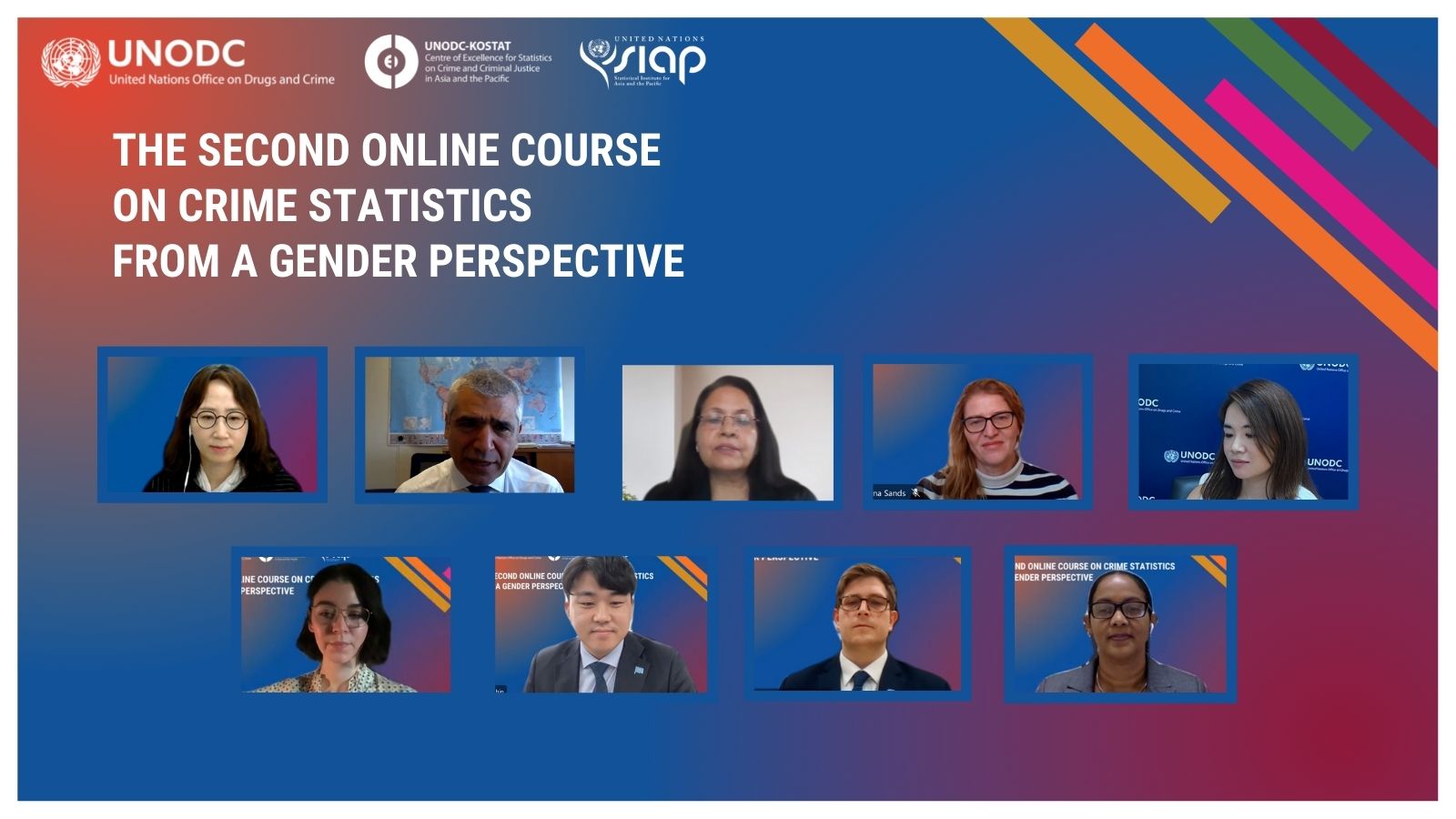
Daejeon (Republic of Korea) Virtual, 20 March 2022 — As part of continued efforts to enhance awareness for prioritizing the development and use of crime statistics from a gender perspective, United Nations Office on Drugs and Crime (UNODC), UNODC-KOSTAT Centre of Excellence for Statistics on Crime and Criminal Justice in Asia and the Pacific (CoE AP), and UN Statistical Institute of Asia and the Pacific (SIAP) launched the ‘Second Online Course on Crime Statistics from a Gender Perspective’ (CSGP 2022).
The E-Learning course was held from 14 February to 20 March as a self-administered interactive training. The course comprised of four modules: Module 1 provided basic concepts of crime and gender, data sources and methodological tools; Module 2 introduced the metadata of relevant SDGs for more effective data collection of genders in crime; Module 3 analysed data collection on gender in criminal justice system; and Module 4 showcased the utilization of ‘R’ to compute SDG indicators.
The course had a total of 232 persons from 36 Member States worldwide with 90 percent of participants 'agreeing’ or ‘strongly agreeing’ that the training effectively enhanced their skills and knowledge.
An expert-led webinar was held on 14 February 2022, to provide introductory information on subject content and technical guidance on the learning platform for the users. The webinar offered expert insights into gender dimensions of crime, gender mainstreaming, gender-related killing of women and girls, a methodological tool for crime-gender statistics, and the E-learning course. Furthermore, the event provided an arena for discussion amongst experts, course lecturers, and participants.
Welcoming remarks were given by the moderator Enrico Bisogno, Chief, Data Development and Dissemination Section, UNODC, Hyun Jung Park, Coordinator, CoE AP, and Shailja Sharma, Director, SIAP. Hyun Jung Park highlighted the importance of “[Providing] an environment where participants can discuss and learn more about gender concepts and frameworks on SDG indicators relevant to crime and criminal justice statistics including gender-based SDG targets.” Shailja Sharma shed light on the importance of inter-agency partnerships in delivering the course stating that “Member States are able to produce high-quality, reliable indicators to monitor relevant Sustainable Development Goals”.
The CoE AP plans to continue strengthening regional capacity in producing high-quality data for crime-gender based SDG targets and overall statistics, to inform policymakers at national and international level.
Further information on the UNODC-KOSTAT CoE can be found on our social media account: Twitter @CoE_UNODC and Facebook @UNODC.KOSTAT.CoE.